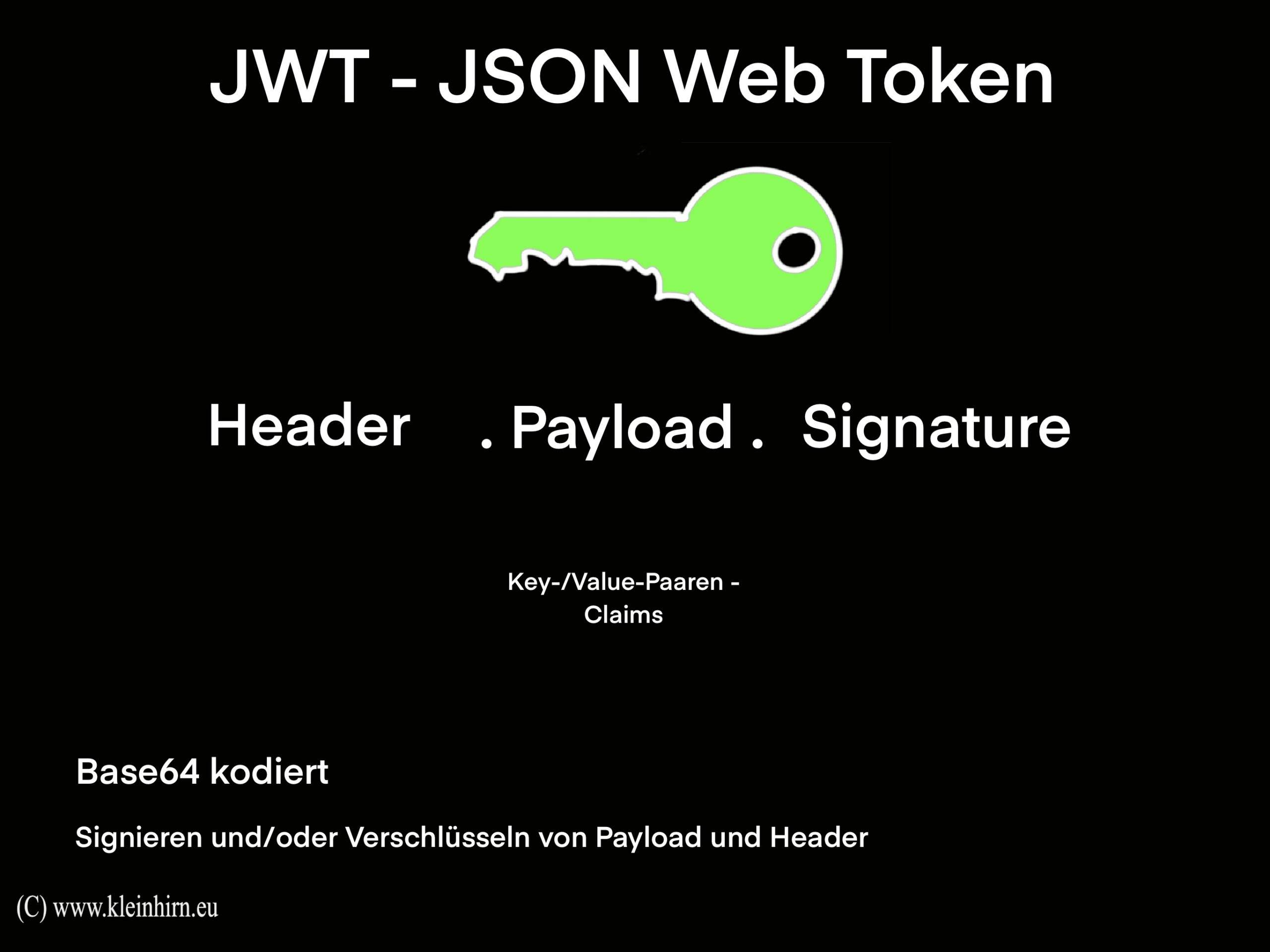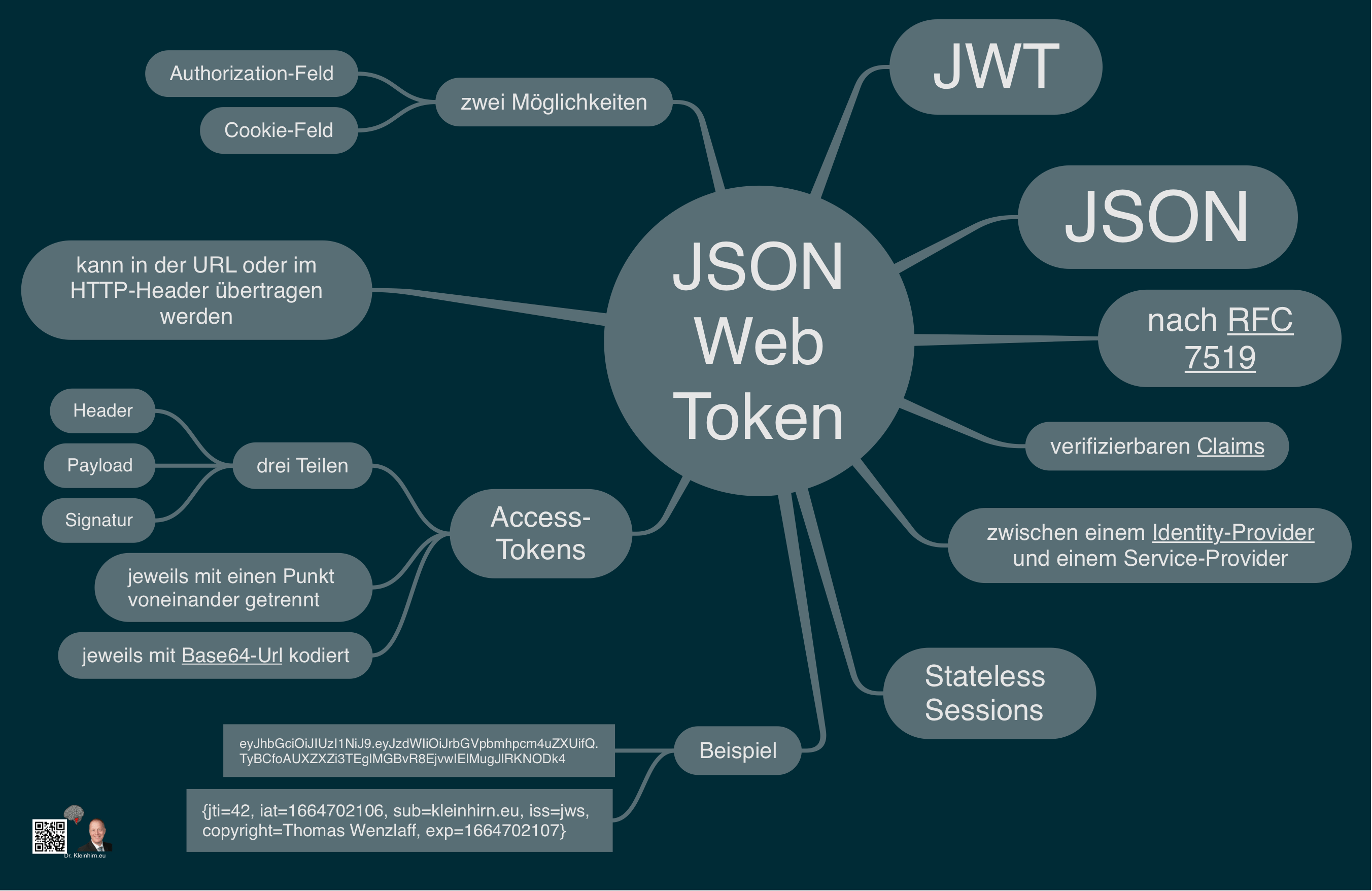
Ein Web-Token ist mit Java schnell erzeugt….

Wir nutzen dazu die jsonwebtoken Lib. Wir brauchen diese Abhängigkeiten in der pom.xml, zwei nur zur Laufzeit
|
1 2 3 4 5 6 7 8 9 10 11 12 13 14 15 16 17 18 19 20 21 22 23 24 25 26 |
<project xmlns="http://maven.apache.org/POM/4.0.0" xmlns:xsi="http://www.w3.org/2001/XMLSchema-instance" xsi:schemaLocation="http://maven.apache.org/POM/4.0.0 https://maven.apache.org/xsd/maven-4.0.0.xsd"> <modelVersion>4.0.0</modelVersion> <groupId>de.wenzlaff.jwt</groupId> <artifactId>de.wenzlaff.jwt</artifactId> <version>0.0.1-SNAPSHOT</version> <dependencies> <dependency> <groupId>io.jsonwebtoken</groupId> <artifactId>jjwt-api</artifactId> <version>0.11.5</version> </dependency> <dependency> <groupId>io.jsonwebtoken</groupId> <artifactId>jjwt-impl</artifactId> <version>0.11.5</version> <scope>runtime</scope> </dependency> <dependency> <groupId>io.jsonwebtoken</groupId> <artifactId>jjwt-jackson</artifactId> <version>0.11.5</version> <scope>runtime</scope> </dependency> </dependencies> </project> |
Dann noch etwas Java-Code:
|
1 2 3 4 5 6 7 8 9 10 11 12 13 14 15 16 17 18 19 20 21 |
Key key = Keys.secretKeyFor(SignatureAlgorithm.HS256); String jws = Jwts.builder().setSubject("kleinhirn.eu").signWith(key) .compact(); System.out.println("Token: " + jws); String subject = Jwts.parserBuilder().setSigningKey(key).build() .parseClaimsJws(jws).getBody().getSubject(); System.out.println("Subject: " + subject); Claims body = Jwts.parserBuilder().setSigningKey(key).build() .parseClaimsJws(jws).getBody(); System.out.println("Body: " + body); String algorithm = Jwts.parserBuilder().setSigningKey(key).build() .parseClaimsJws(jws).getHeader().getAlgorithm(); System.out.println("getAlgorithm: " + algorithm); |
Schon haben wir einen Web-Token:
|
1 2 3 4 |
Token: eyJhbGciOiJIUzI1NiJ9.eyJzdWIiOiJrbGVpbmhpcm4uZXUifQ.2ls4hoyYQyEn9GXpMAlA6b7BJgBIUPiwI0L18wdskkg Subject: kleinhirn.eu Body: {sub=kleinhirn.eu} getAlgorithm: HS256 |
